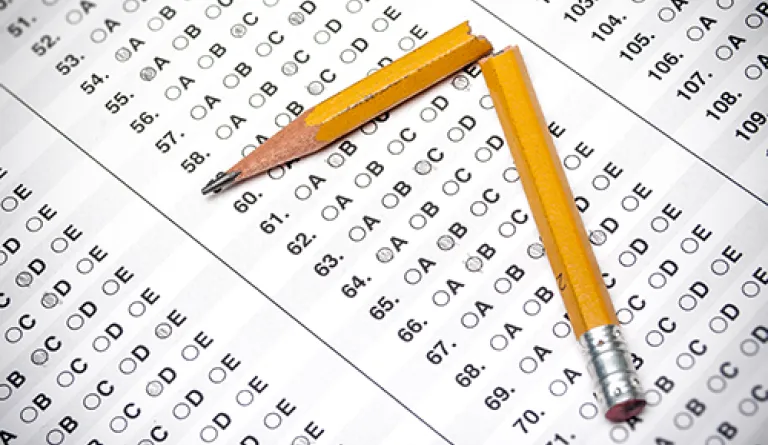No Small Measures: We Must Radically Reconsider Lawyer Licensure and the Bar Exam

At this point, it’s fairly trite to begin writing with a comment about the impact COVID-19 has on our lives and our legal system. But it’s an inescapable truth that the pandemic has forced us to rethink so much about how we do things and why—and one of the places where we’ve seen huge shifts is with the bar exam.
It became clear last spring that the July 2020 bar exam—if it was going to be held at all—was going to look a lot different than it ever had before. Some states decided to remotely administer exams, some created rules allowing diploma privilege, and some delayed or offered custom exam dates. The pandemic’s disruption to the status quo brought with it a critical view of the exam, how it is administered, and whether it actually tests what it purports to. And people are still asking questions: if it’s acceptable to license lawyers in new ways this year, why isn’t it acceptable to license lawyers in new ways going forward?
Running in parallel with these pandemic-necessitated changes were a set of studies related to the bar exam and legal licensure. IAALS, in partnership with Professor Deborah Merritt from The Ohio State University, conducted Building a Better Bar to develop an evidence-based definition of minimum competence to practice law—a definition which had not previously existed (even though the bar exam purports to test for it). Our findings revealed that minimum competence consists of 12 interlocking components—what we call building blocks:
- The ability to act professionally and in accordance with the rules of professional conduct
- An understanding of legal processes and sources of law
- An understanding of threshold concepts in many subjects
- The ability to interpret legal materials
- The ability to interact effectively with clients
- The ability to identify legal issues
- The ability to conduct research
- The ability to communicate as a lawyer
- The ability to see the “big picture” of client matters
- The ability to manage a law-related workload responsibly
- The ability to cope with the stresses of legal practice
- The ability to pursue self-directed learning
Our findings also support the use of open-book exams with more time allotted for completion, use of written performance tests over multiple-choice questions, and use of practice-based assessments for assessing minimum competence.
The National Conference of Bar Examiners (NCBE)—the group that creates the bar exam—also recently released its recommendations following the third phase of their multi-year research “to inform how the bar exam should be changed to adapt to a changing profession.” The NCBE’s findings and recommendations have considerable overlap with those of IAALS’ study—and the NCBE should be commended for their efforts to improve the bar exam.
Still, there is plenty of room to go further and to think more critically about the way we license lawyers. The NCBE’s recommendations take it as a given that a bar exam is the best approach for licensure. But is it? We should question whether that’s really the case at all. For instance, IAALS and NCBE agree that skills such as working with clients, negotiation, and interviewing are critical components of minimum competence. But is a written exam really the best way to assess these kinds of skills? Would it make more sense to evaluate these skills in a setting—such as in clinical courses in law school—that reflects real-world practice with higher fidelity? The ABA’s law school accreditation standards already mandate that law schools require students to complete at least six credit hours on experiential coursework (clinical, simulations, or field placements). Such experiential courses present a promising avenue for assessing competence in these important areas for the purposes of licensure, obviating the need to test them on a standardized exam.
The NCBE identifies “keeping the exam affordable so that cost does not pose a barrier to entering the profession” as a key objective in developing their recommendations, the implication being that the exam is currently affordable and that cost is not a barrier to entry. While the exam itself may or may not be cost prohibitive (which is highly debatable), there is an entire industry built upon test prep for the bar exam—for example, Barbri courses range from $2,000 to more than $6,000. In addition, a great many candidates for bar admission take months off of work to focus on studying for the exam. So, people with the means to spend thousands on bar prep courses and study for months without income have a clear advantage—which, of course, contributes to the incredible and unacceptable racial disparities we see in the profession today.
We challenge NCBE to work with us and others to push further. We must challenge ourselves to find better, more equitable ways to assess minimum competence. The status quo—and tinkering around its edges—is not good enough. We must try new approaches and conduct research to understand their efficacy. It is time we had the courage and will to look beyond the assumptions that underpin the current bar exam and towards outcomes and purpose for a new era. We must not be wedded to tradition for tradition’s sake—especially when tradition has left so many behind.

